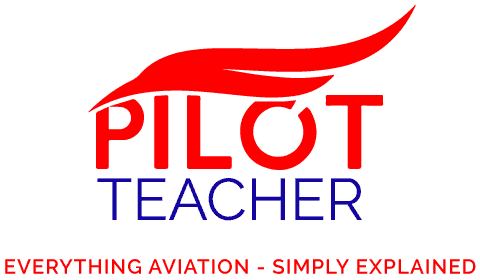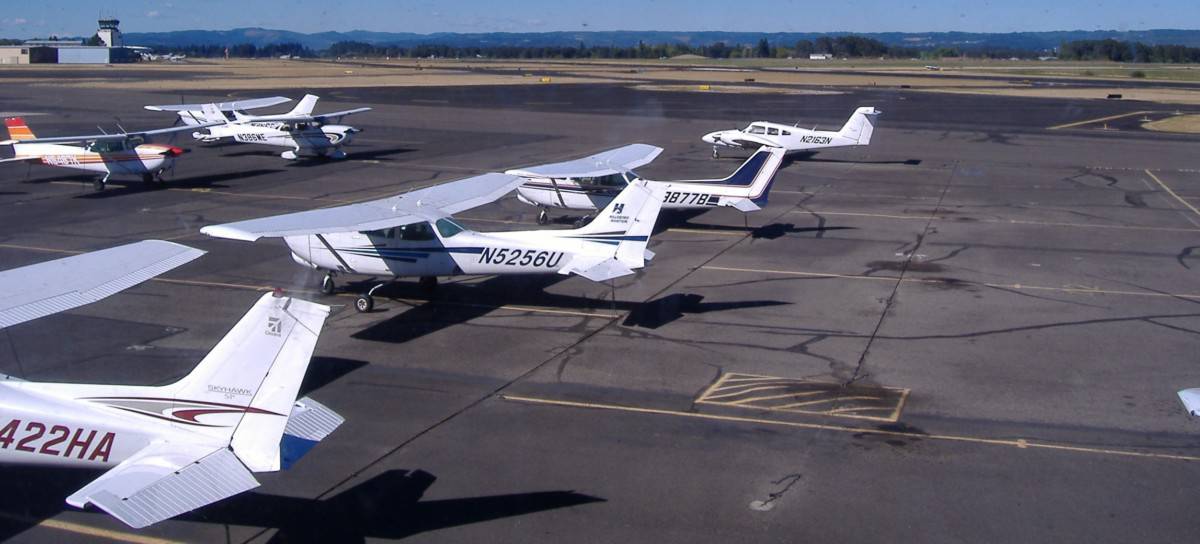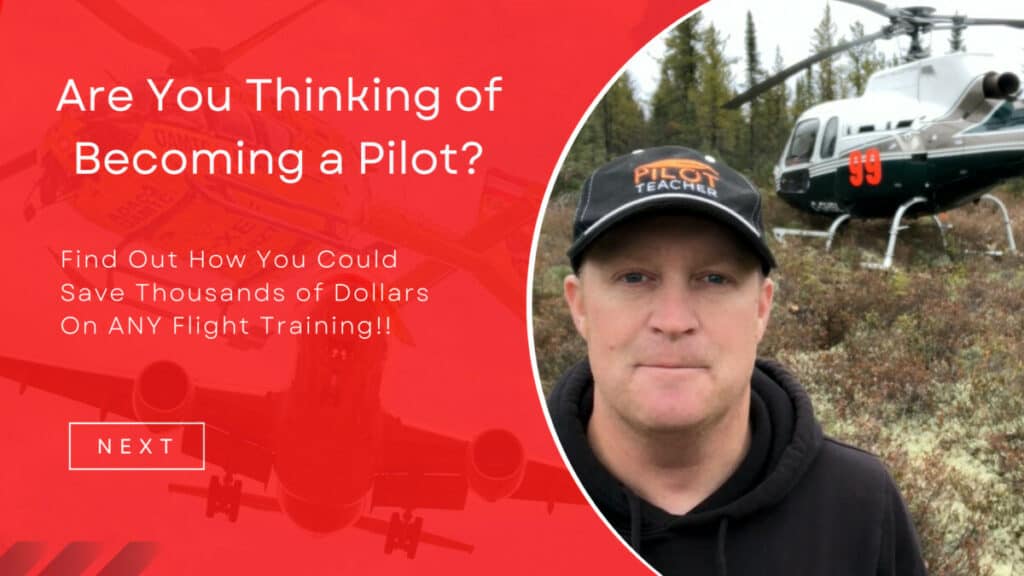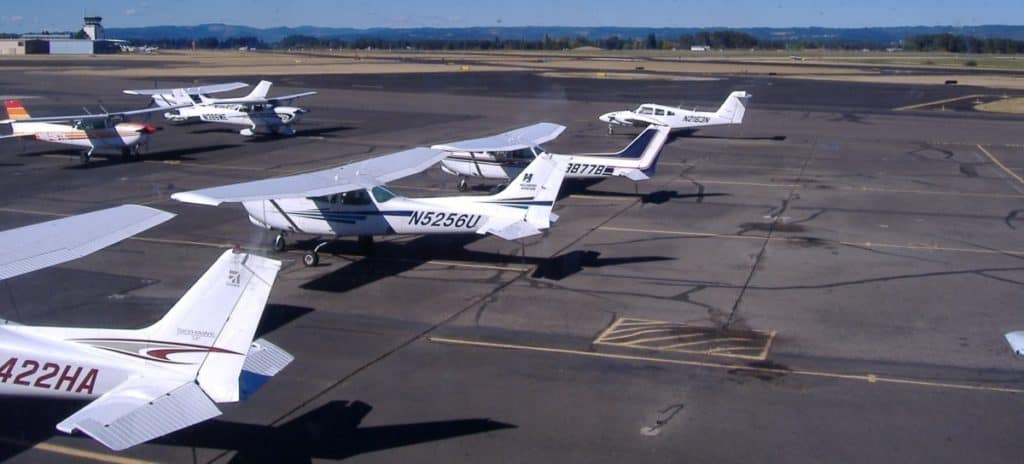
Many people wishing to become pilots may be thinking that flight school is very much like a college or a university in that it has certain requirements that need to be met to qualify for a training program. For some, the thought of going to school is daunting as it may have been many decades since they were last in a learning environment, and have no idea if anything is required just to begin learning to fly.
Before joining flight school students will need to be 16 years old, be able to read, write & understand English and be able to obtain an Airmens Medical Certificate. Academic proficiency is usually only examined for flight training programs associated with a degree or airline sponsorship.
Learning to fly is a great challenge and is available to everyone. The further into a professional career a pilot wishes to go, the more stringent the requirements can be for joining a program because the level of academic studies can get very intense.
For most people wanting to learn how to fly the requirements are minimal. If you wish to see what is required for flight school then keep reading…
Pre-Requirements for Joining a Flight School
Upon joining a flight school or learning to fly outside of flight school there are three main requirements that a person needs to meet to qualify for a Student Pilot Certificate. This certificate allows the student to fly an aircraft solo when they have reached the required standard during their training.
To be eligible for a Student Pilot Certificate the applicant must:
- Be 14 years old if learning to fly a Balloon or Glider
- Be 16 years old if learning to fly an Airplane or Helicopter
- Can read, write & understand English
Once a Student Pilot Certificate is obtained then training for the following certificates can continue:
- Sport Pilot Certificate
- Recreational Pilot Certificate
- Private Pilot Certificate
Sport Pilot Certificate
To be eligible for a Sport Pilot Certificate flight test the applicant must:
14 CFR Part61 Subpart J
- Be 16 years old if learning to fly a Balloon or Glider
- Be 17 years old if learning to fly an Airplane or Helicopter
- Have a valid U.S. driver’s license & comply with §61.315, or at least a Third Class Medical Certificate (See Later)
- Pass a Written Knowledge Exam
- Pass a Flight Test (Checkride)
Recreational Pilot Certificate
To be eligible for a Recreational Pilot Certificate flight test the applicant must:
14 CFR Part61 Subpart D
- Be at least 17 years old
- Hold either a Student or Sport Pilot Certificate
- Hold at least a Third Class Medical Certificate
- Pass a Written Knowledge Exam
- Pass a Checkride
Private Pilot Certificate
To be eligible for a Private Pilot Certificate flight test the applicant must:
14 CFR Part61 Subpart E
- Be 16 years old if learning to fly a Balloon or Glider
- Be 17 years old if learning to fly an Airplane or Helicopter
- Hold either a Student, Sport Pilot, or Recreational Certificate
- Hold at least a Third Class Medical Certificate
- Pass a Written Knowledge Exam
- Pass a Checkride
When the student has gained at least one of the above pilot certificates then they will be eligible to continue training if they wish to earn more professional certificates like the Commercial Pilot Certificate or the Airline Transport Pilot Certificate.
There are two routes that a student pilot can train to get their wings:
- Vocational Pilot Training Programs
- Academic Pilot Training Programs
Pre-Requirements for Vocational Pilot Training Programs:
Vocational flight training programs are perfect for students who wish to train part or full-time, wish to learn for pleasure flying, aircraft ownership, or become a commercial pilot. A relaxed school environment without the deadlines and classroom schedules is how most vocational flight training programs are run. It is more down to the individual student to progress in their training.
Vocational flight training providers will provide you with the flight/ground instructors, the syllabus, tools, and the aircraft on which to train and it is up to you to put the work in. You will mostly train on your own schedule and it will be up to you to keep your training progressing.
Learn More…
Try These Articles:
* Do You Need a Pilots License To Fly?
* Do All Pilots Have to Learn English?
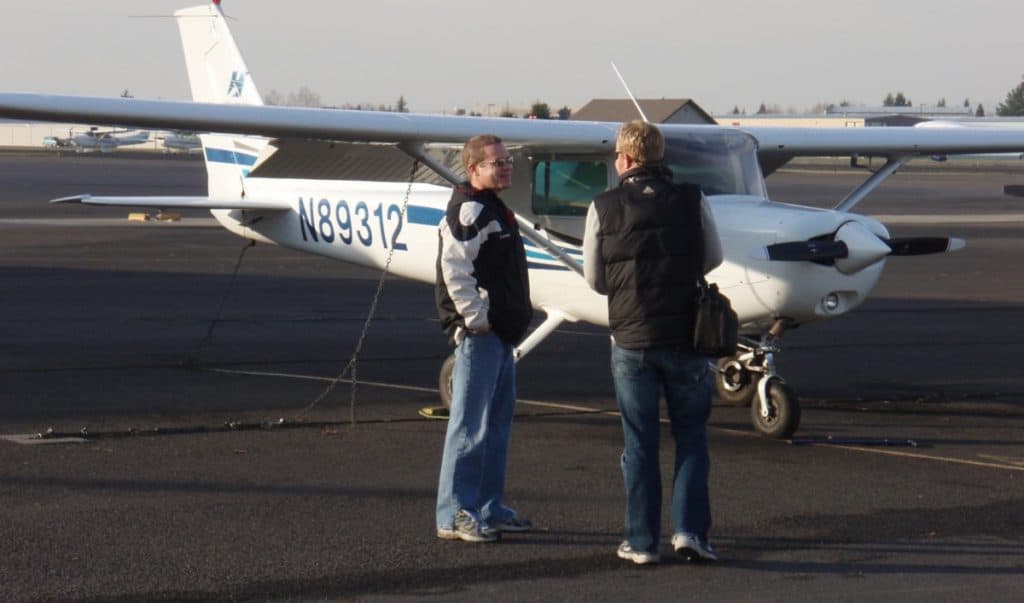
For most flight schools, they are a business, and to be truthful, they don’t care if you succeed or not, so long as you pay them money and try. Providing you meet the standards to be eligible for gaining a student pilot certificate and then the certificate you are training for (Sport, Recreational, Private, and so on..) then you will have no problem booking your place.
What you have to understand is that there is a lot of theory and technical knowledge involved in getting your wings and you will have to learn and be able to repeat this knowledge for stage checks, the written examination, and the oral and flight sections of the checkride. I’m not going to lie, it is tough, especially when you have been away from an academic environment for a long time.
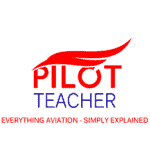
Join My Newsletter & Get Great Tips, Information and Experiences To Help You Become a Superb Pilot!
When I began my flight training I was 22. I had not long finished a 5 year technical engineering apprenticeship and I like physics and had a good understanding of it and even I found it tough – Why, because it’s a vast amount of information and a lot of the areas like aerodynamics require you to picture what is going on in your head all while learning these new phrases and acronyms.
This is why learning to fly is a challenge, but with the right preparedness and tools, ANYONE can learn to fly!
Here is just a selection of things you will be learning as part of your theoretical training, learning to actually fly is separate from this:
- Aviation Law
- Aerodynamics
- Physics
- Weather
- Aircraft Technical
- Aircraft Performance
- Weight & Balance
- Aeronautical Decision Making
- Physiological & Physiological Factors
- Navigation Principals & Techniques
- Radio Communications
- Flight Planning
This list may seem daunting and to be honest, it is, but as part of your training you will slowly begin to absorb and understand everything you need to know, but it takes commitment, work, study, and practice. To help, books and online training tools are a great way to help absorb all this information and a mixture of both is what I had found works best for me and my students.
To help guide you in many of the tools and training aids needed for flight school you can find a great selection of items to help you study and prepare HERE.
Pre-Requirements for Academic Pilot Training Programs:
This is usually where you will find certain flight training programs that will require pre-entry testing for its applicants. These flight schools will be running Professional Pilot Programs and/or University/College-based flight training as part of earning a degree or diploma. These programs are aimed at those individuals serious about a career in aviation and spaces are limited.
Depending on the program and the training provider its been offered by, a student can be expected to meet the following requirements:
- 18 Years of Age or Older
- High School Diploma or GED
- FAA First Class Medical Certificate
- Plus More Depending on the School
To ensure the students taking up each place on the program stand the best chance of succeeding and not wasting the training providers’ time they will weed out any applicants that don’t meet the required standards the schools deem are required. The level of pre-acceptance testing can be very basic to very in-depth depending on the size and reputation of the flight school.
Here is a statement from Embry-Riddle, one of the most highly recognized aviation-based universities in the country:
“High school students are advised to prepare for Embry-Riddle by taking three years of math, four years of English, two years of social science, and two years of science with lab. Students should have a background in algebra, geometry, and — for engineering majors — calculus and trigonometry. Chemistry and physics are the preferred science courses”
For those students wishing to earn their degree while learning to fly then the application process is no different to any other university, the only other pre-requisite is that the student is able to gain a First Class Medical Certificate to ensure they will meet the required standards set forth by the FAA for the pilot certificate sought.
The second consideration some students may have to consider is their weight and height.
Training aircraft are small and very tall or heavy students may not meet the physical requirements for the school’s aircraft. Because of this, it is advisable for any student who is over 6ft or 250lbs to contact the school to discuss options with them before applying for a place on their program.
Learn More…
Try These Articles:
* Do Flight Schools Drug Test Students & Instructors?
* U.S. Flight Training Visas: Your Easy, Helpful Guide!
* Flight School: Full-Time Vs Part-Time Training
* Flight School Reputation – Does It Matter Where You Train?
What are the FAA Aviation Medical Certificate Requirements?
Depending on the type of pilot certificate you are looking to obtain you will need to satisfy an authorized Medical Examiner (AME) that you meet the standard required for each class. The more responsibility you have as a pilot, the stricter the medical tolerances are to pass, and the frequency at which you need to be examined increases.
Class 3 Airmen Medical Certificate
This is the most relaxed medical certificate a pilot can obtain. It is required when flying under the privileges of a Sport Pilot, Recreational Pilot, or Private Pilot Certificate. It is aimed at pilots who wish to fly for fun, recreation, aircraft owners, and business owners.
Class 2 Airmen Medical Certificate
This is the middle medical certificate a pilot can obtain. It is required when flying under the privileges of a Commercial Pilot Certificate. It is aimed at pilots who wish to be financially compensated while performing the duties of a pilot.
Class 1 Airmen Medical Certificate
This is the most stringent medical certificate a pilot can obtain. It is required when flying under the privileges of an Airline Transport Pilot Certificate. It is aimed at pilots who will be flying large commercial airplanes, jets, and helicopters under IFR conditions.
For a complete guide of what each Airmen Medical Certificate requires please check out my article here:
Pilot Medical Exam – What You Need To Pass Each Class
To Finish
When learning to fly there are some pre-requirements that you will need to fulfill before you begin training. Depending on the level of pilot certificate you are looking to obtain will dictate not only the medical requirements but the programs you need to take. Depending on where these programs are provided may mean a very high standard of academic proficiency or a lot of hard work under your own motivation to ensure the program gets completed.
Learning to fly is a challenge but everyone is capable of achieving it. I saw some of my own students struggle for months and months, but it finally began to sink in and they all passed their check rides and went on to enjoy a life of recreational flying or carried on to the next certificate and followed their dream to become a professional pilot.
